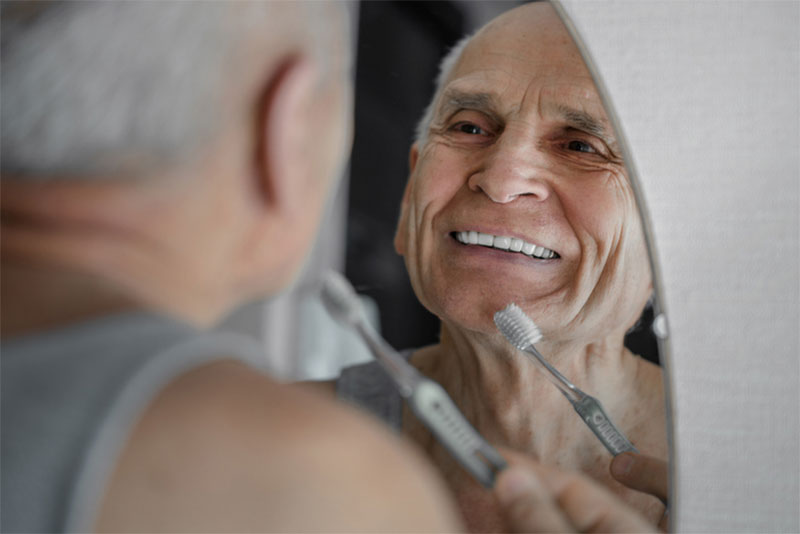
Maintaining self-reliance for people with dementia is important and these tips can help.
If you are caring for someone with dementia, you may be inclined to do whatever you can for the person to ease the stress of even the most basic everyday tasks. Independent living and dementia may even seem like polar opposites. However, all of us have a natural need to safeguard self-reliance and the freedom to stay in control of our lives. This is true in spite of Alzheimer’s and other forms of dementia. Consequently, it’s imperative to foster self-reliance for people with dementia, to whatever degree possible.
How Can I Promote Self-Reliance for People With Dementia?
It takes some extra time and effort to adjust daily activities to foster independence, but it will be worth it. And of course, the stage of dementia will be a prominent factor in just how much adaptability is required. Below are a few suggestions to get you started on rethinking how everyday tasks can be accomplished successfully for a person with dementia.
Preparation and Set-Up
Think through the steps involved with a certain activity, and which might be complicated for the older adult. For instance, reaching up into the cabinet for their toothbrush, twisting the cap off the toothpaste, and accurately squeezing just the right amount onto the bristles might be difficult. In this case, before the person comes into the bathroom, take care of those steps, leaving the prepared toothbrush on the edge of the sink. They may then be able to independently complete the task. In the same way, you can lay out clothing, place food out for making lunch, or whatever advance steps will empower them to manage an activity independently.
Stand Back But Model and Prompt as Needed
Provide the person some space to attempt the task, but stay nearby to provide support as required. This will allow as much independence as possible without causing the individual frustration if the task turns out to be too complicated. Using the example of brushing their teeth, say the person picks up the toothbrush but seems confused about what to do next. There are many ways you can offer assistance. One particularly unobtrusive way is through nonverbal modeling. You can pick up your own toothbrush, and while you are both facing the mirror, start to brush your own teeth. This might be all that is needed for the individual to copy your actions. If this does not work, try a question prompt, for example, “I see you are holding your toothbrush; what’s next?”
Use Step-by-Step Instructions
If prompting and modeling are not helping, try breaking the process down into smaller steps and offering verbal hints for each step as required. In the example above, it might look something like this: “Let’s place the toothbrush on our teeth. Now we’ll move the brush backwards and forwards, like this. Now we’ll take a sip of water and rinse.” After each step, pause and see if the individual can continue independently, and if so, end your verbal coaching and step back once again to allow them to finish the task themselves.
Monitor
Regardless of the person’s ability level, make sure to stay close enough to ensure safety. This doesn’t mean hovering over the person while they’re brushing their teeth. But it does mean being near enough to make sure they’re turning on cold water as opposed to hot to avoid a burn. There’s a fine line to walk between helping and hindering.
At Morning Glory Home Care, a provider of dementia care in Edwardsville, Granite City, and the nearby areas, it is always our top priority to encourage older adults to maintain as much control over their everyday lives and choices as possible, while ensuring their safety and wellbeing. Contact us at 618-667-8400 if you would like to talk to us about any challenges you are facing in caring for a person with dementia. We are always here to help.
